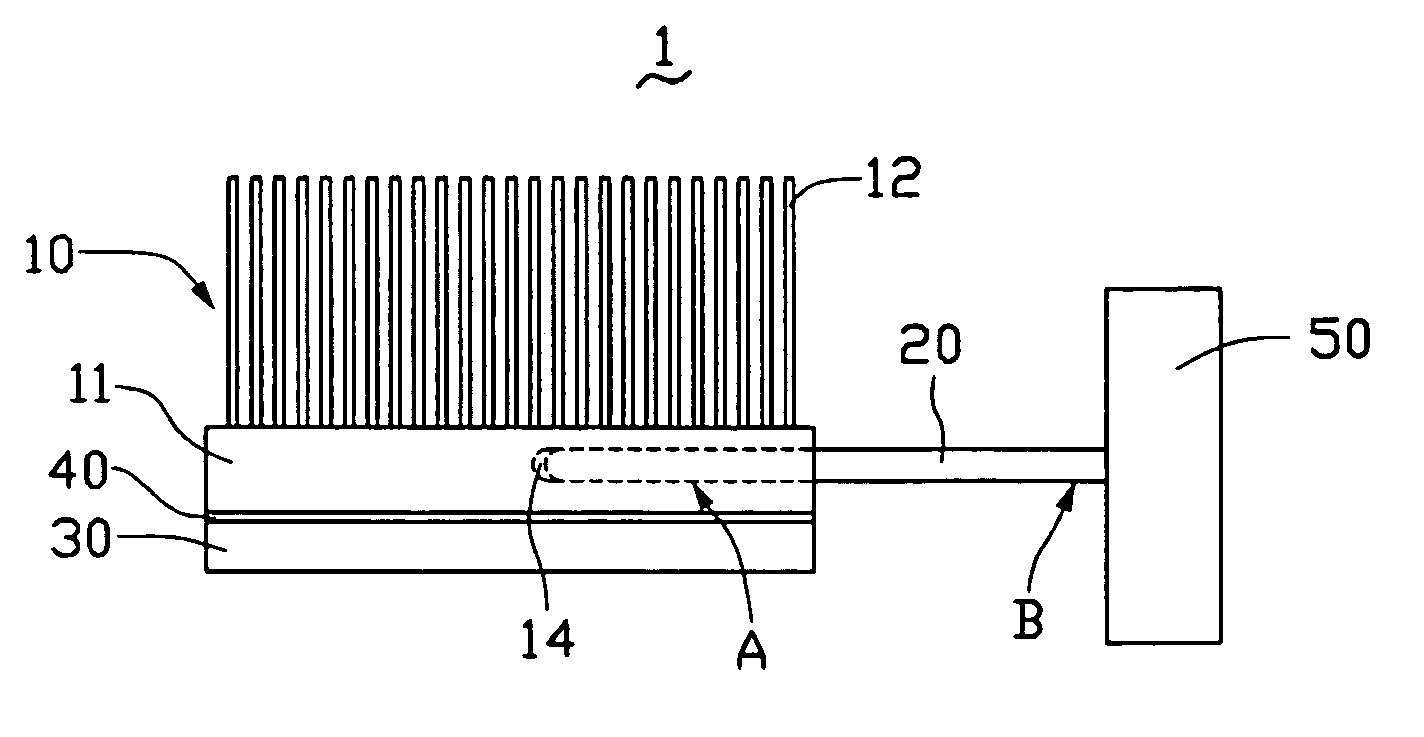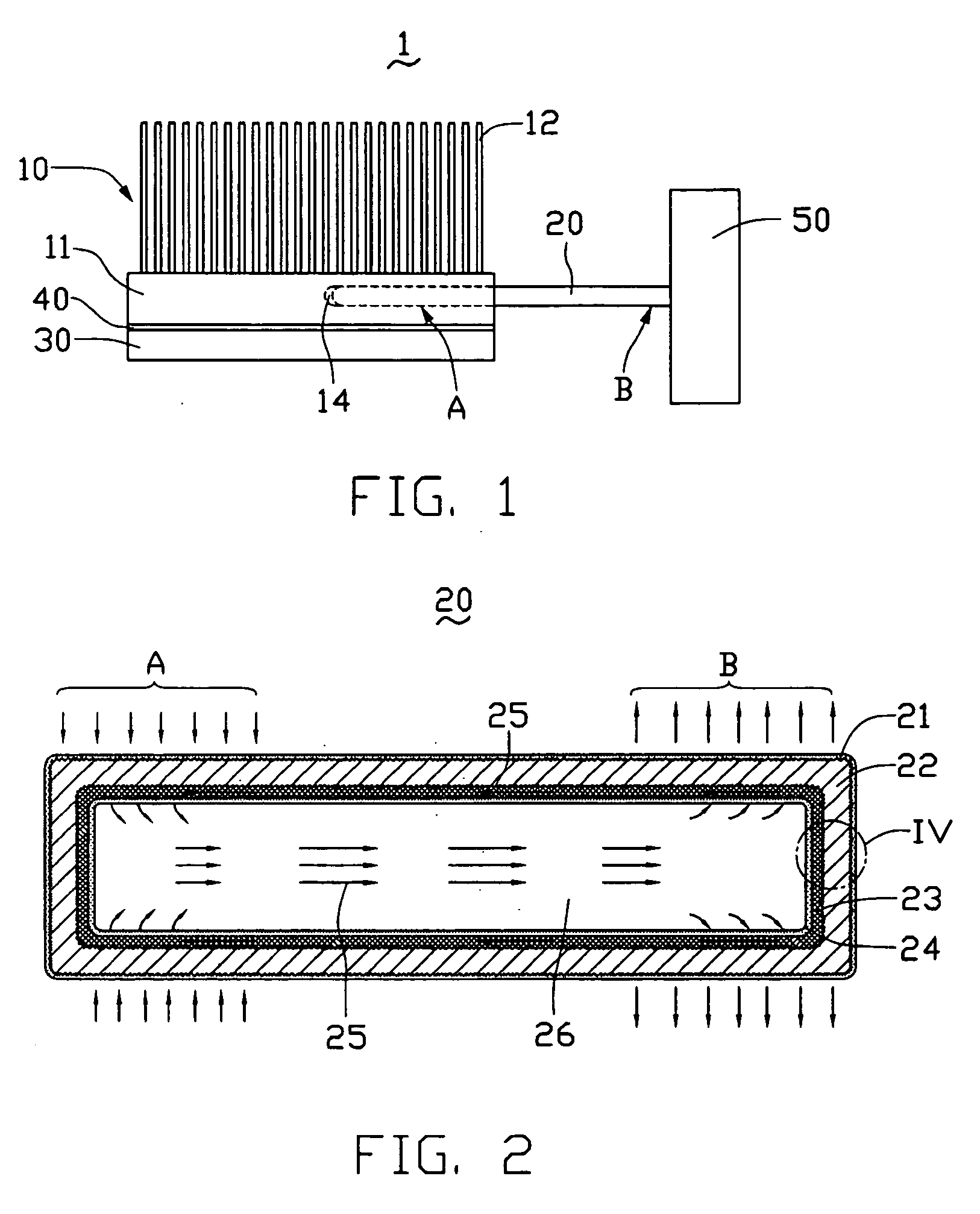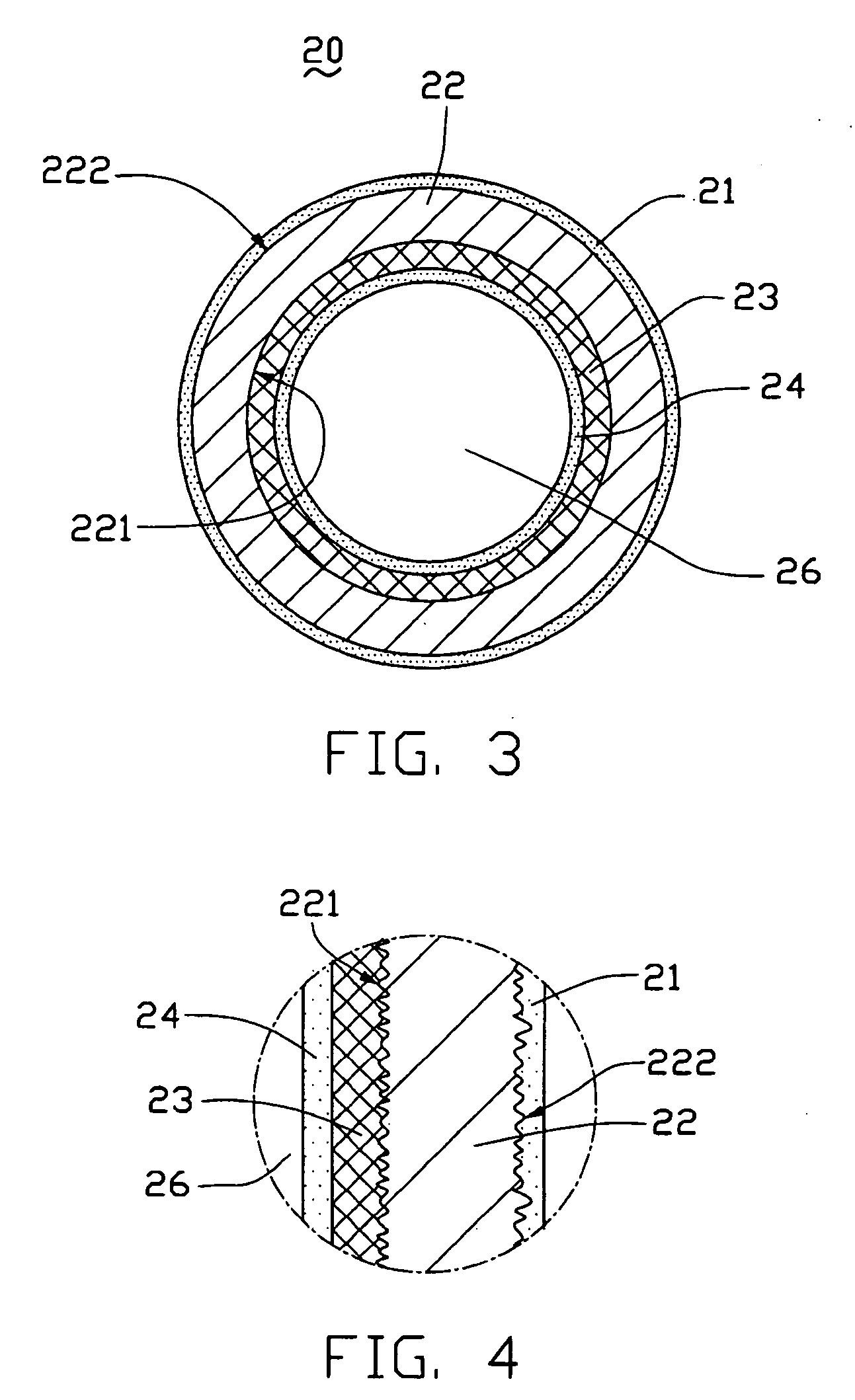Heat dissipation system
a heat dissipation system and heat dissipation tube technology, applied in indirect heat exchangers, lighting and heating apparatus, semiconductor/solid-state device details, etc., can solve the problems of increased manufacturing cost of heat pipes, and increased heat pipe pressure, so as to achieve efficient heat transfer, great heat dissipation area, and enhanced capillary
- Summary
- Abstract
- Description
- Claims
- Application Information
AI Technical Summary
Benefits of technology
Problems solved by technology
Method used
Image
Examples
Embodiment Construction
[0020] Embodiments of the present heat dissipation system now be described in detail below with reference to the drawings.
[0021]FIG. 1 illustrates a heat dissipation system 1 in accordance with a preferred embodiment. The heat dissipation system 1 includes a heat sink 10, a heat pipe 20, and a cooling assembly 50. The heat sink 10 includes a substrate 11 and a number of fins 12 extending from a surface thereof. The heat pipe 20 generally has two opposite end sections, i.e., an evaporation section “A” and a condensation section “B”. The substrate 11 has a receiving portion 14 for the insertion of the evaporation section “A” of the heat pipe 20 thereinto. The cooling assembly 50 is disposed adjacent the condensation section “B” of the heat pipe 20 and is configured for promoting heat transfer away from the heat pipe 20.
[0022] The substrate 11 and the fins 12 are advantageously made of a metal displaying excellent thermal conductivity and good oxidation resistance, preferably a mater...
PUM
| Property | Measurement | Unit |
|---|---|---|
| thickness | aaaaa | aaaaa |
| thickness | aaaaa | aaaaa |
| thickness | aaaaa | aaaaa |
Abstract
Description
Claims
Application Information
 Login to View More
Login to View More - R&D
- Intellectual Property
- Life Sciences
- Materials
- Tech Scout
- Unparalleled Data Quality
- Higher Quality Content
- 60% Fewer Hallucinations
Browse by: Latest US Patents, China's latest patents, Technical Efficacy Thesaurus, Application Domain, Technology Topic, Popular Technical Reports.
© 2025 PatSnap. All rights reserved.Legal|Privacy policy|Modern Slavery Act Transparency Statement|Sitemap|About US| Contact US: help@patsnap.com



